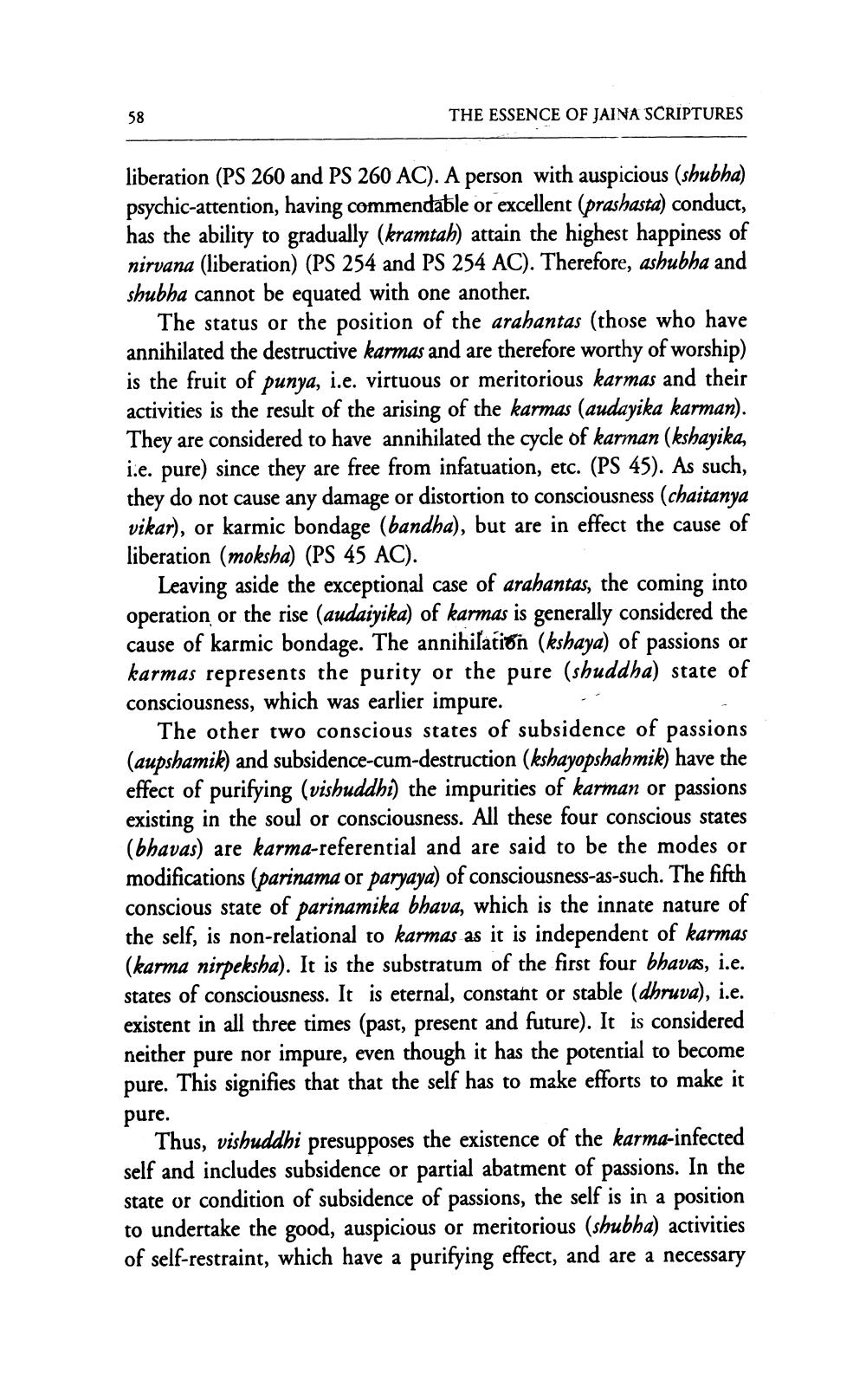________________
THE ESSENCE OF JAINA SCRIPTURES
liberation (PS 260 and PS 260 AC). A person with auspicious (shubha) psychic-attention, having commendable or excellent (prashasta) conduct, has the ability to gradually (kramtah) attain the highest happiness of nirvana (liberation) (PS 254 and PS 254 AC). Therefore, ashubha and shubha cannot be equated with one another.
The status or the position of the arahantas (those who have annihilated the destructive karmas and are therefore worthy of worship) is the fruit of punya, i.e. virtuous or meritorious karmas and their activities is the result of the arising of the karmas (audayika karman). They are considered to have annihilated the cycle of karman (kshayika, i.e. pure) since they are free from infatuation, etc. (PS 45). As such, they do not cause any damage or distortion to consciousness (chaitanya vikar), or karmic bondage (bandha), but are in effect the cause of liberation (moksha) (PS 45 AC).
Leaving aside the exceptional case of arahantas, the coming into operation or the rise (audaiyika) of karmas is generally considered the cause of karmic bondage. The annihilation (kshaya) of passions or karmas represents the purity or the pure (shuddha) state of consciousness, which was earlier impure.
The other two conscious states of subsidence of passions (aupshamik) and subsidence-cum-destruction (kshayopshahmik) have the effect of purifying (vishuddhi) the impurities of karman or passions existing in the soul or consciousness. All these four conscious states (bhavas) are karma-referential and are said to be the modes or modifications (parinama or paryaya) of consciousness-as-such. The fifth conscious state of parinamika bhava, which is the innate nature of the self, is non-relational to karmas as it is independent of karmas (karma nirpeksha). It is the substratum of the first four bhavas, i.e. states of consciousness. It is eternal, constant or stable (dhruva), i.e. existent in all three times (past, present and future). It is considered neither pure nor impure, even though it has the potential to become pure. This signifies that that the self has to make efforts to make it
pure.
Thus, vishuddhi presupposes the existence of the karma-infected self and includes subsidence or partial abatment of passions. In the state or condition of subsidence of passions, the self is in a position to undertake the good, auspicious or meritorious (shubha) activities of self-restraint, which have a purifying effect, and are a necessary




